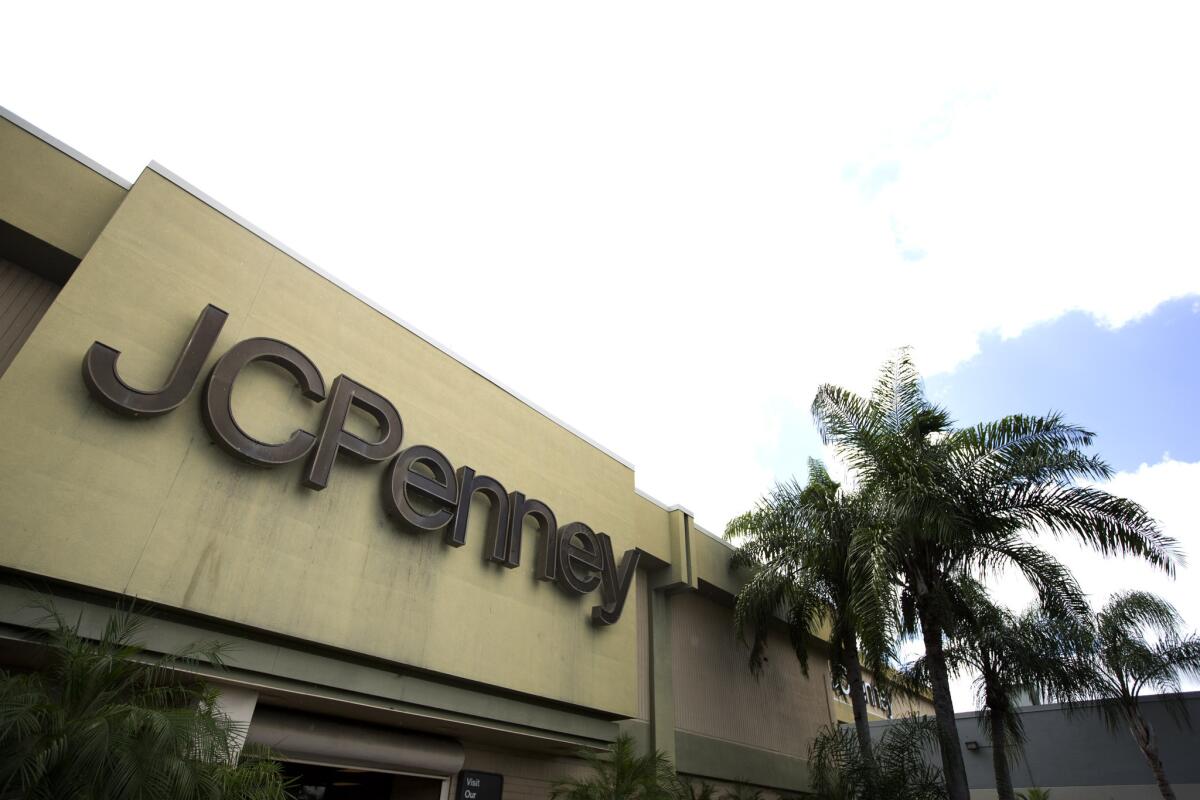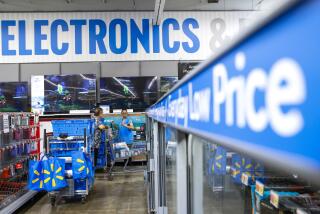Retailers deemed ‘nonessential’ are in big trouble

U.S. retailers have laid bare the consequences of being deemed “essential” in the COVID-19 pandemic, as sales surged at those allowed to stay open but collapsed at department stores, clothing chains and other outlets forced to fall back on their online operations.
Financial results published this week have demonstrated how sometimes-contentious designations by various U.S. cities and states have influenced billions of dollars’ worth of consumer spending.
For the record:
10:35 a.m. May 23, 2020An earlier version of this article appeared under the byline of Ben Muessig. It was written by the Financial Times.
Macy’s, Ross Stores and Victoria’s Secret owner L Brands each slumped to a quarterly loss after their stores were closed — in stark contrast to Walmart, which posted its biggest rise in quarterly U.S. sales in 15 years.
“You’ve got a whole slew of retailers whose sales were already slow, and they happened to be nonessential,” said Ken Perkins, head of the research group Retail Metrics. “As if things weren’t trending away from them, this just accelerated it.”
Macy’s warned it was set for a $1-billion quarterly operating loss after the closure of all its approximately 775 stores, including the Bloomingdale’s chain, caused a “precipitous decline” in revenue.
Although its balance sheet has been in better shape than peers J.C. Penney and Neiman Marcus, both of which filed for bankruptcy protection this month, the closures have accelerated a decline at the company. Its total debt has swelled from $4.7 billion to an estimated $5.7 billion over the last year compared with an equity market capitalization of $1.7 billion.
Jeff Gennette, Macy’s chief executive, said business was likely to recover only “gradually.” The group said it had about 190 outlets open and expected an additional 80 to be up and running this weekend.
Foot Locker on Friday said more than half its 3,100 stores around the world — most of which are in shopping malls — were still closed, as the New York-based company reported a first-quarter net loss of $98 million and a 43% drop in sales to $1.18 billion.
In a sign that some of the effects of the crisis will be lasting, L Brands laid down plans this week to permanently shut 250 Victoria’s Secret stores across North America over the next several months. Quarterly net sales at the long-struggling company, which temporarily closed all its North America stores in March, dropped 37% from a year ago to $1.65 billion, and it had net losses of $297 million.
The widespread closures have given a huge boost to the handful of companies that have been allowed to stay open by local authorities because they sell food and other “essential” items.
Some of these businesses, including Target as well as Walmart, also stock a wide range of other goods, and sales at their departments selling more discretionary items such as electronics and housewares have also risen.
The latest retailer to report a sales jump was BJ’s Wholesale Club, which has more than 200 membership outlets in the eastern U.S. Chief Executive Lee Delaney said BJ’s had become a “one-stop destination,” helping total revenue leap 21% in the quarter to $3.8 billion. Operating income more than doubled to $144 million.
Declarations by U.S. states and cities about which businesses must close have been contested, and several industry lobby groups fought hard to be given the valuable “essential” designation.
The National Retail Federation called on the White House to intervene and called for “big box” outlets, among others, to be kept open.
The crisis has accelerated trends that were developing long before the outbreak and is threatening to widen the gulf between winners and losers in retail.
While department store chains and other companies with out-of-favor formats had been floundering long before the outbreak, chains such as Walmart have coped with the rise of e-commerce far better thanks to a mix of convenience and low prices in stores, as well as investments in online operations.
“The divide has really grown,” Perkins said. “It will be interesting to see whether the divide closes as the economy reopens, but it’s unlikely that it’s going to narrow drastically.”
Executives at companies that have outperformed during the pandemic said their successes were in large part due to their own initiative to attract and retain customers, which had often required them to reimagine how they operate.
Best Buy, the electronics chain, closed to in-store customers even in jurisdictions where it was not required to do so but remained open for curbside collection.
CEO Corie Barry said the company “believed it was the best way at the time to keep our customers and employees as safe as possible.”
First-quarter sales dipped 6% from a year ago to $8.6 billion while net income fell from $265 million to $159 million, yet the declines were less than some analysts expected.
More to Read
Inside the business of entertainment
The Wide Shot brings you news, analysis and insights on everything from streaming wars to production — and what it all means for the future.
You may occasionally receive promotional content from the Los Angeles Times.










